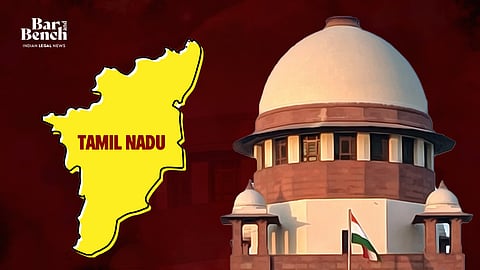
- Latest Legal News
- News
- Dealstreet
- Viewpoint
- Columns
- Interviews
- Law School
- Legal Jobs
- हिंदी
- ಕನ್ನಡ

The Supreme Court on Friday issued notice on a petition filed by the State of Tamil Nadu challenging a Madras High Court order that stayed the operation of nine State laws concerning the appointment of Vice-Chancellors in public universities [The State of Tamil Nadu & Anr v. K Venkatachalapathy @ Kutty & Ors].